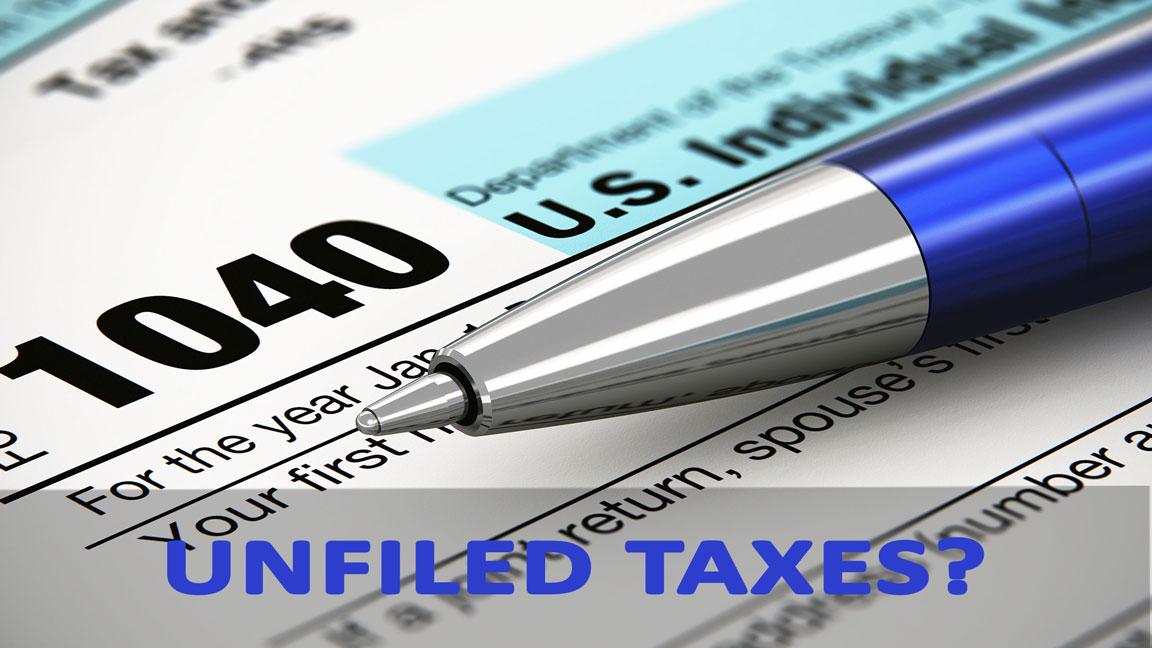Millions of Americans fail to file every year. In fact, close to 7.5 million Americans either forgot to file, had life complications that disallowed them from filing, or just simply failed to file their taxes. No one wants to commit a tax crime, but the point being, is that it happens all the time. It is not a crime to owe taxes, but it is a crime if you do not file at all. If you haven’t filed your previous year or years of tax returns, the first thing you want to do is get into compliance with the IRS. Don’t think you can get away with not filing; the IRS is tremendously effective in identifying non-filers. ‘Outsmarting’ the IRS is not an option.
Consequences of Not Filing: Failure to File, Failure to Pay Penalties, and More
From the moment your tax return is late, steep penalties begin to accrue:
- Failure to file penalties;
- Failure to pay penalties;
- Failure to deposit penalties;
- Interest on the tax liability;
- and interest on penalties & principal
Adding all of these penalties together will exponentially increase your tax liability. Even if you cannot pay back your taxes, it is still better to file than not to file at all. Just by filing, you can eliminate the failure to file penalty and the interest associated with it.For each month that the tax return is not filed, the IRS charges a 5% failure to file penalty of the overall debt. The maximum failure to file penalty can be up to 25% of the tax due. To put it into perspective, if you fail to file and owe $10,000 in back taxes, the IRS can charge you $500 a month in failure to file penalties for each month that the tax returns are late, up to $2,500 total. The only way to avoid this penalty is if you file on time. The failure to pay penalty (1% monthly) and the failure to deposit penalties continue to exist, but at a lower percentage than the failure to file percentage. If you are missing tax returns, you can usually avoid prosecution by voluntarily filing.
What are SFR’s?
We understand that the process of filing taxes can be nerve-wracking if you haven’t filed for previous years. Oftentimes people may choose not to file because they think they cannot afford to pay their taxes for that year. In the case that you failed to file, the IRS will most likely file a Substitute for Return (SFR) for you. Although it sounds like the IRS is doing the work for you, don’t be misled. In most cases, the SFR’s will only inflate your debt- making it seem like you owe more than you actually owe. The purpose of SFR’s is to calculate the assessment, which is the dollar amount of how much you owe for that tax year, and begin the process of collections.
Compliance is Key:
So, how do I file my unfiled returns and get on track to paying off my tax debt? Of course, the first step to resolving this issue is to ensure that you are in compliance with the IRS. ‘What is compliance?’ you may ask. According to the IRS, a taxpayer is in compliance if they have filed all of their tax returns for up to the previous six years. At this point, it is important to file the missing returns and correcting any SFR returns with original tax returns. Correcting the SFR’s should dramatically decrease the overall tax debt. It’s important to note that your tax returns must be accurate and reasonable. Once we correct your debt and get you into compliance, you are now in a better standing to negotiate a payment plan with the IRS.
What’s Next:
Here we have several options in negotiating with the IRS, depending on the size of your tax debt and your ability to pay it off. In order to determine which program is best for you, consult your local tax advisor. Using a tax professional, like us at MendozaCo, will help put you in the best position possible to tackle your tax debt while keeping you in compliance for future returns. For more information about resolution options, visit our website, MendozaCo.com, and read our articles on installment agreements, offer in compromise, and partial pay agreements. For reliable, innovative help with your tax debt, give us a call or schedule an appointment today.


